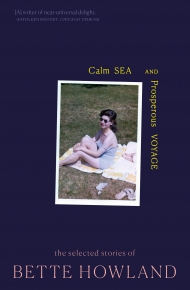On Robyn Schiff’s “De La Rue’s Envelope Machine”
• Patricia Lockwood • September 15, 2014
The first thing I do, of course, is look up what the hell any of this is—and I find the Wikipedia entry to be a stunning verbal innovation. Listen:
The "envelopes" produced by the Hill/De La Rue machine were not as we know them today. They were flat diamond, lozenge (or rhombus)-shaped sheets or "blanks" which had been precut to shape before being fed to the machine for creasing and made ready for folding to form a rectangular enclosure.
I didn't know any of this because I "know" very little, especially about things that nerds did in the past. What kind of man decides that paper needs to go inside other paper? I look up Warren De la Rue and he has the most hilarious beard I've ever seen. Trust me. Go Google him, I'll wait till you come back. It’s like a bat signal on his chin—no wonder he could see into the future. Already my life has been enriched, and the poem hasn't even started yet.
Now to the poem itself, which is fed to the machine for creasing. The grammar folds over on itself. The line breaks fold the poem once, and then again, and then again, into a diamond. I think of Schiff's sound as having a sort of angular fluency, like water traveling down steps, or a game of Mouse Trap. Her trick is to set up a rigorous scaffolding and then let the poem itself flow down it. That fluid, hitched, staggering sound is instantly identifiable—it’s a meeting of the constructed and the elemental. You have to work hard reading it, but that is what you were built to do. You were even built to contain things, things like this.
This is a lost, legendary episode of How It's Made. The workings of a machine are a mystery, so we just watch what flies out of its mouth. Down the conveyor belt passes a parade of transformations: cards for wedding and mourning, swords, white cranes, copies, dollar bills. A book written by Houdini, to imply we might get out in the end. At long last a person comes down the conveyor, eyes closed and arms crossed over her chest. The hands fold up in death, then open up to reveal yes no yes no, or reveal nothing.
Every poem is a poem about what paper can do—if a poet’s not interested in paper, she’s not interested in life. Does it matter how the language is folded if no one reads it? But look, they do read it. It reaches you. 27,000 envelopes an hour can't hold it.
Read Robyn Schiff's "De La Rue's Envelope Machine" in Issue 5.
Back to Top
Author
Patricia Lockwood is the author of two poetry collections, Balloon Pop Outlaw Black (Octopus Books) and Motherland Fatherland Homelandsexuals (Penguin). Her poems have appeared in the New Yorker, Slate, and Poetry.
Categories
Archive
About
A Public Space is an independent, non-profit publisher of the award-winning literary and arts magazine; and A Public Space Books. Since 2006, under the direction of founding editor Brigid Hughes the mission of A Public Space has been to seek out and support overlooked and unclassifiable work.
Featured Title

"A ferocious sense of engagement... and a glowing heart." —Wall Street Journal
Current Issue

Subscribe
A one-year subscription to the magazine includes three print issues of the magazine; access to digital editions and the online archive; and membership in a vibrant community of readers and writers.
Newsletter
Get the latest updates from A Public Space.
